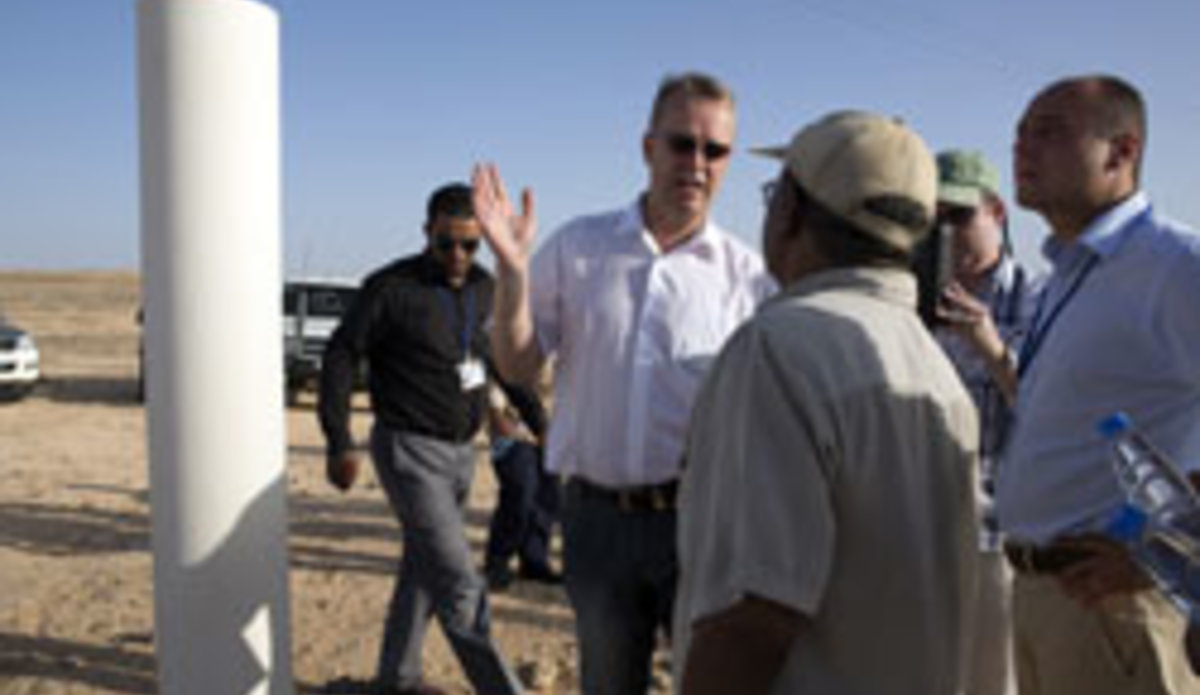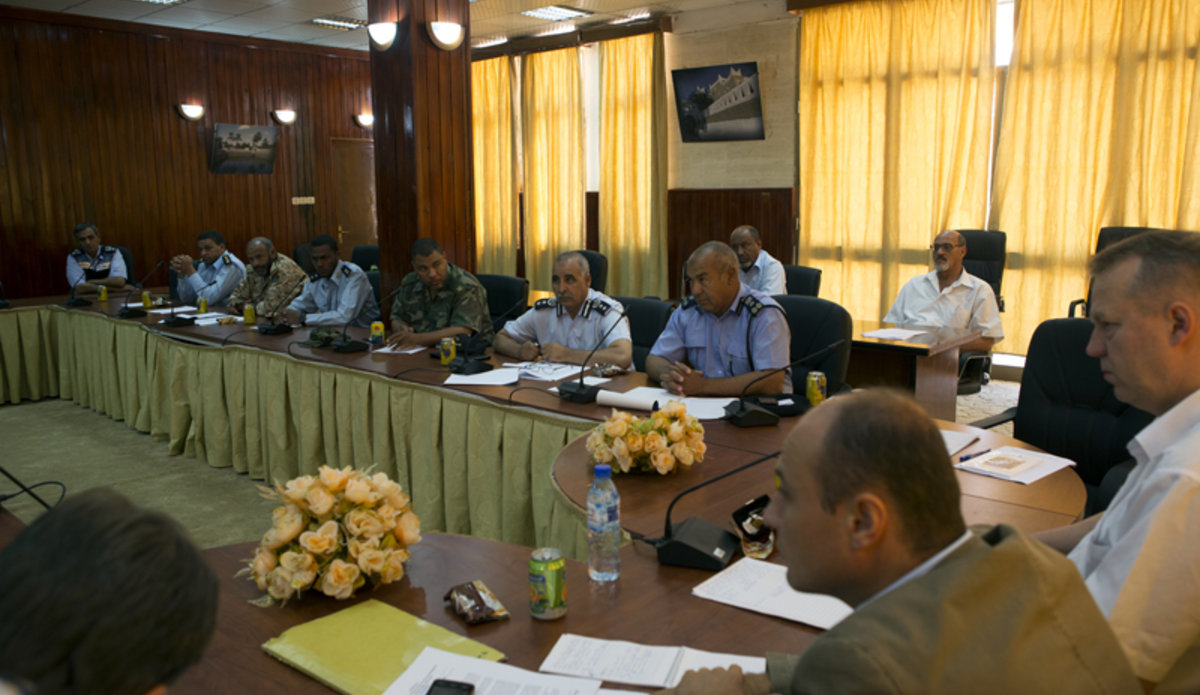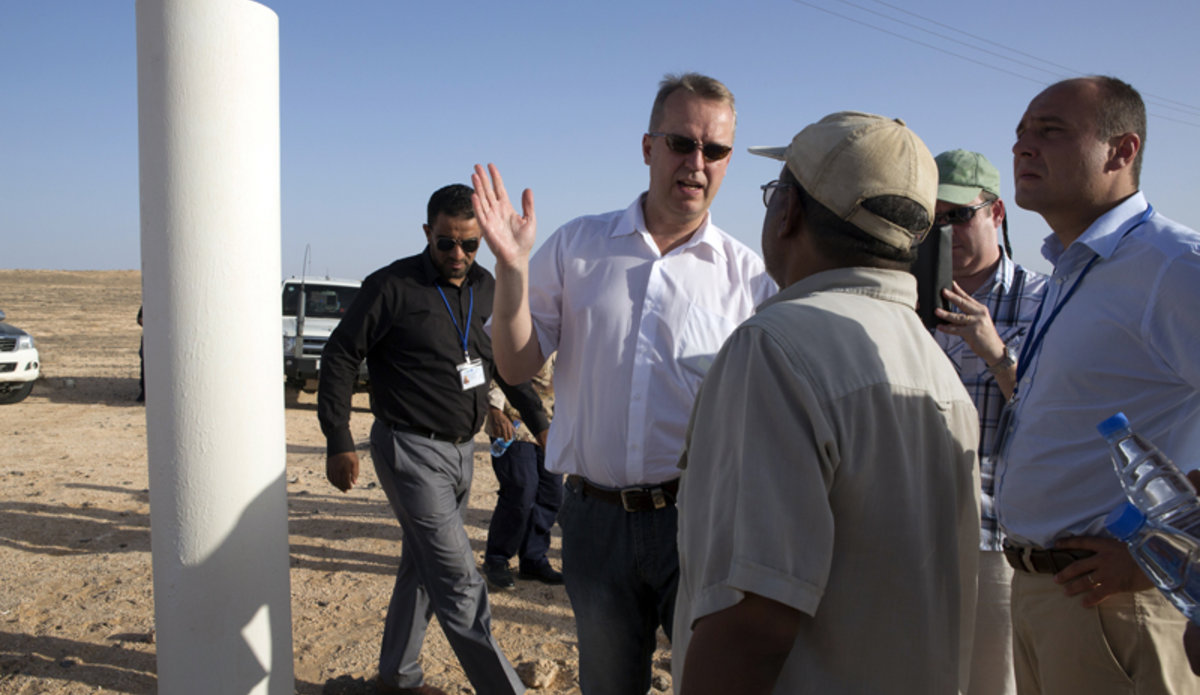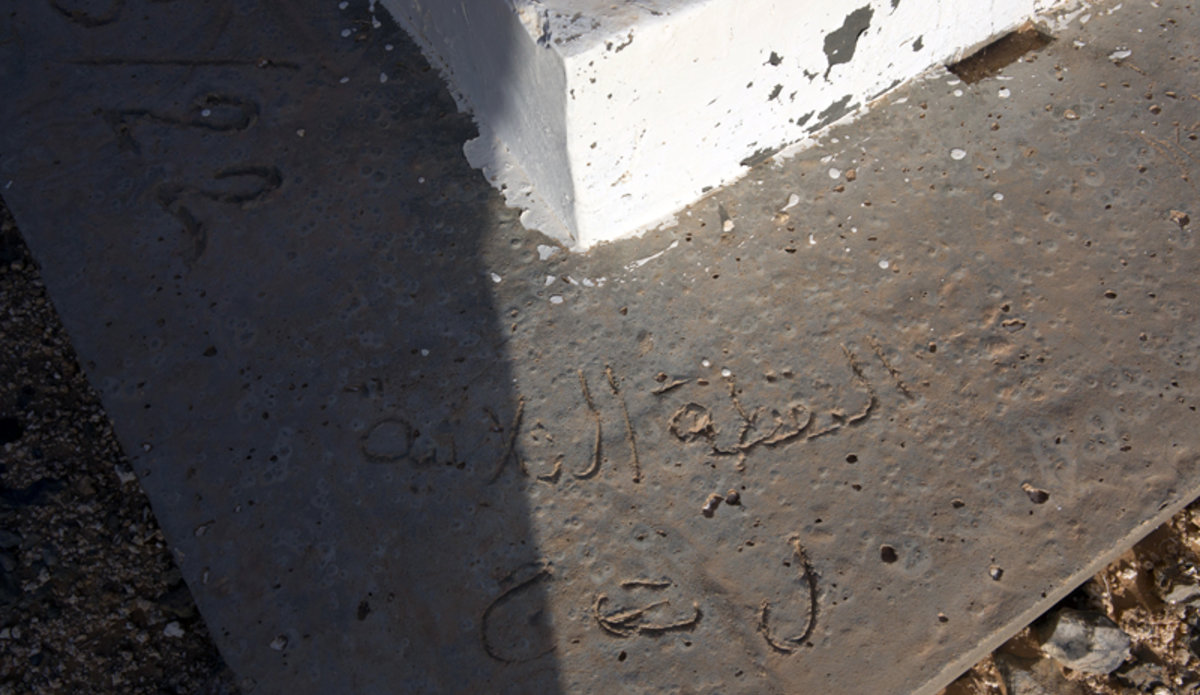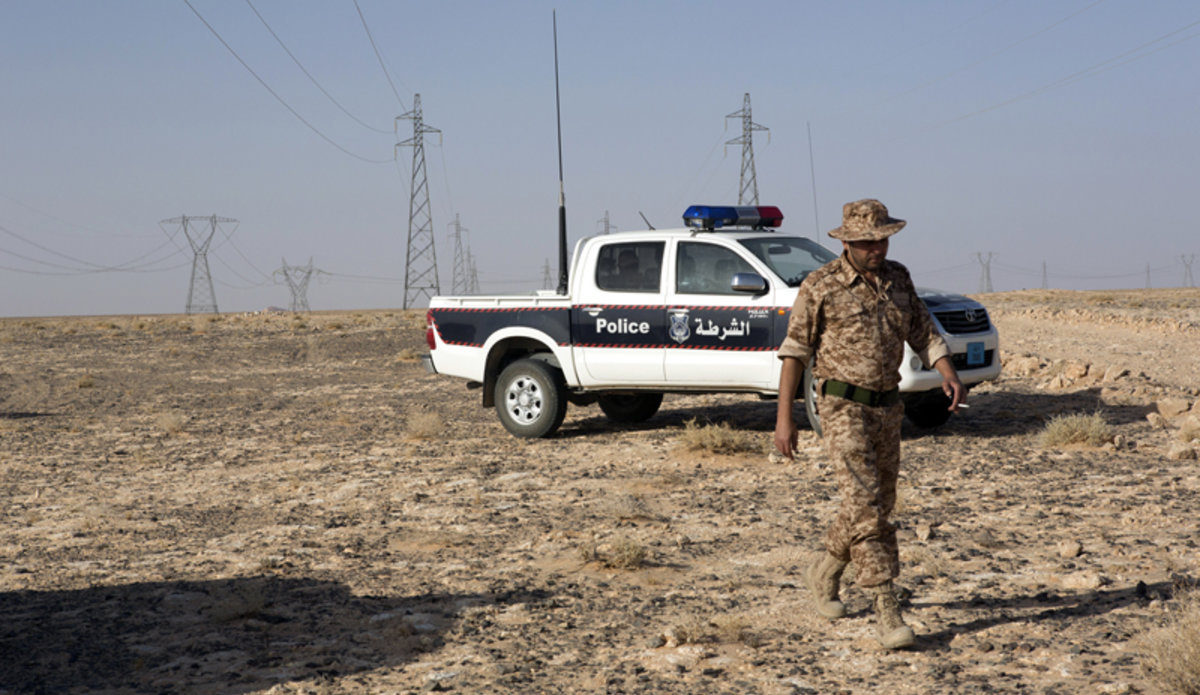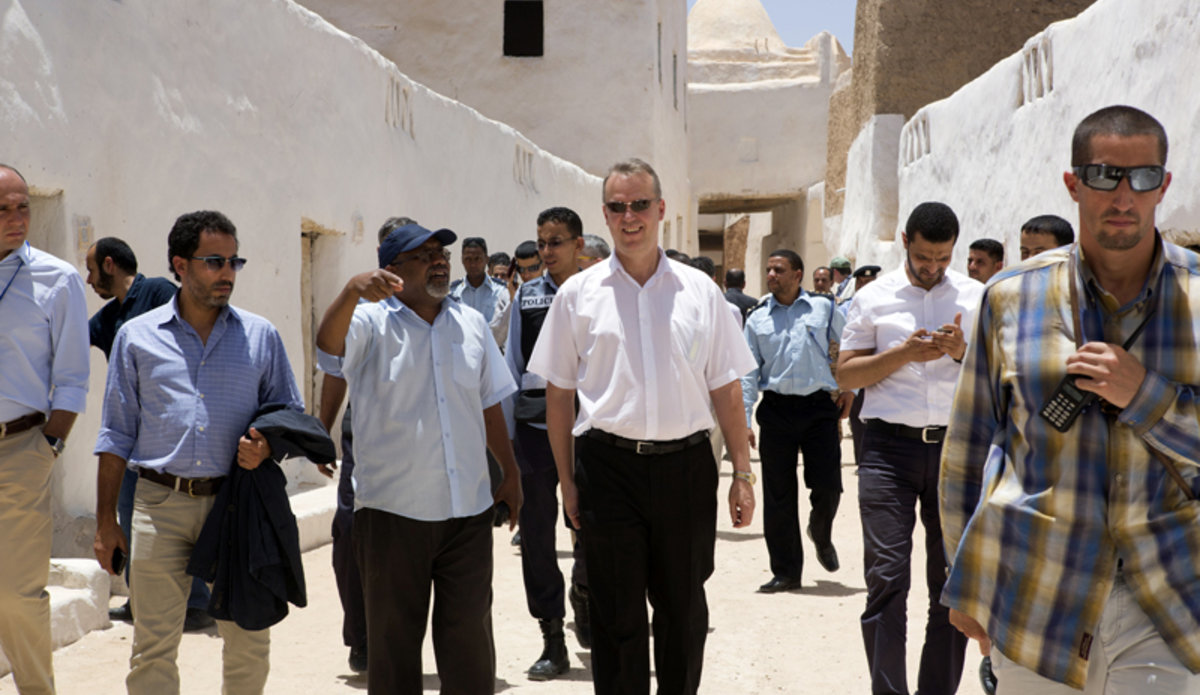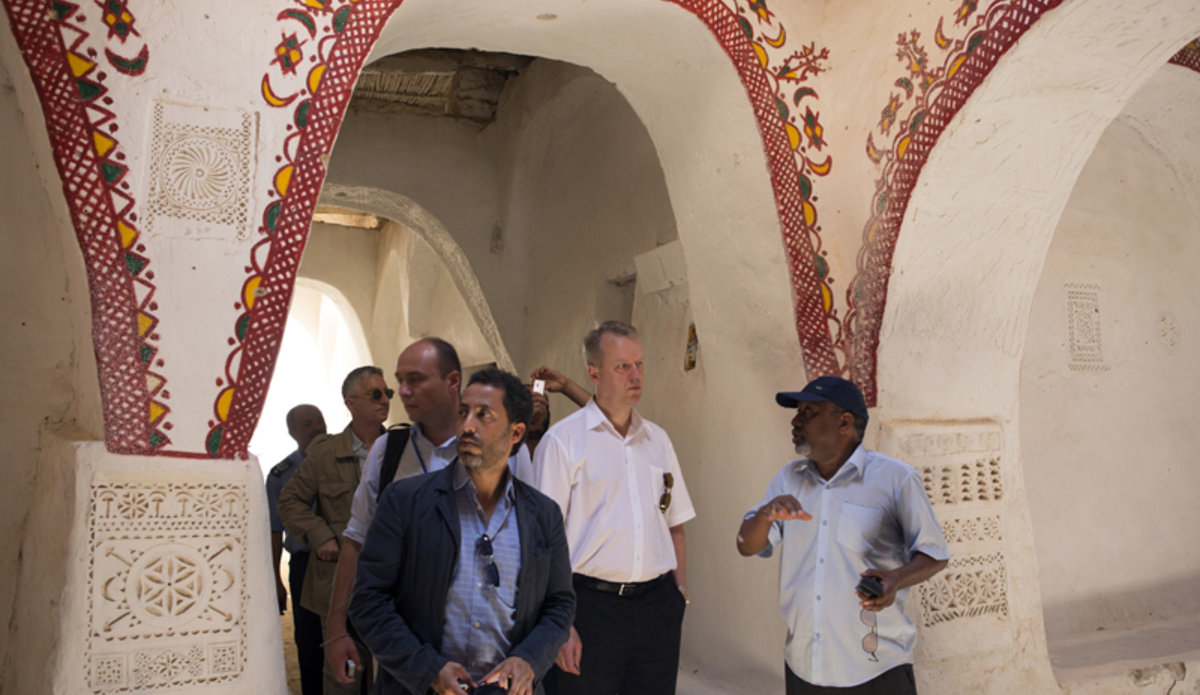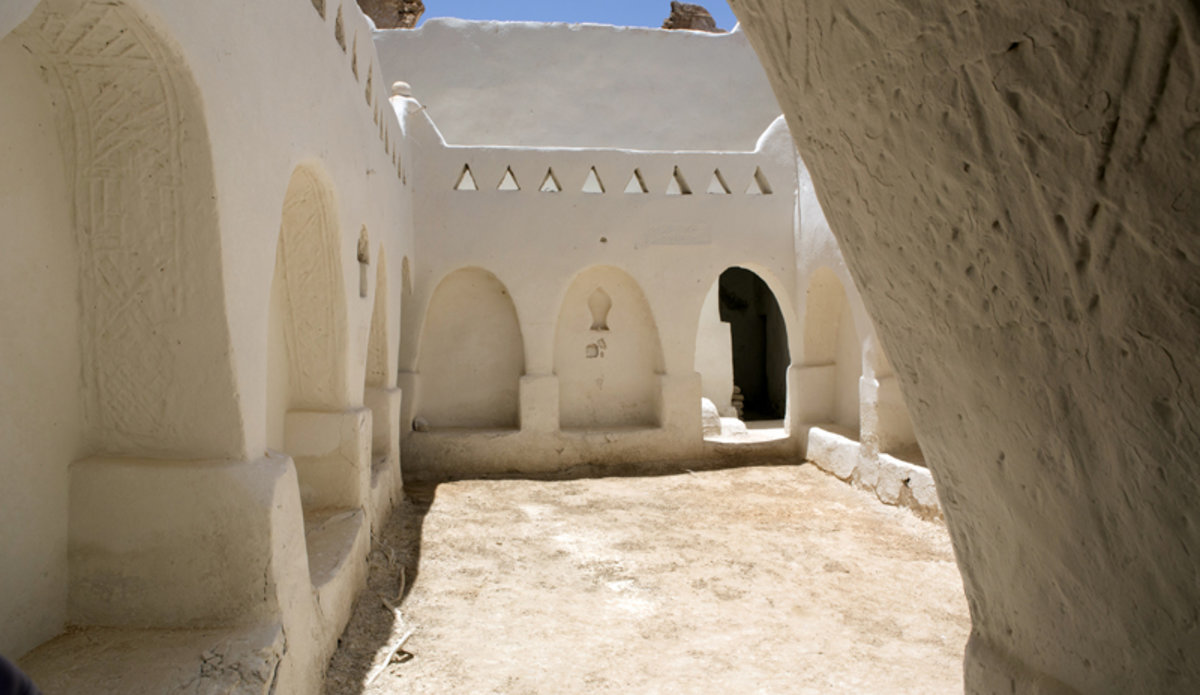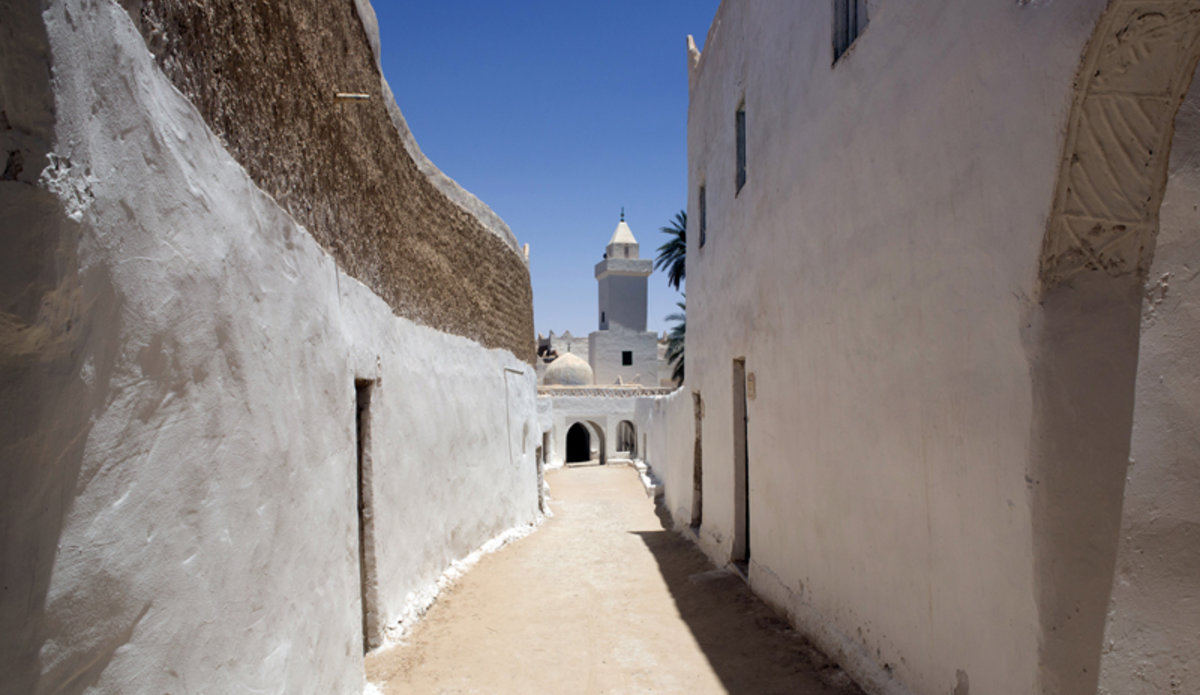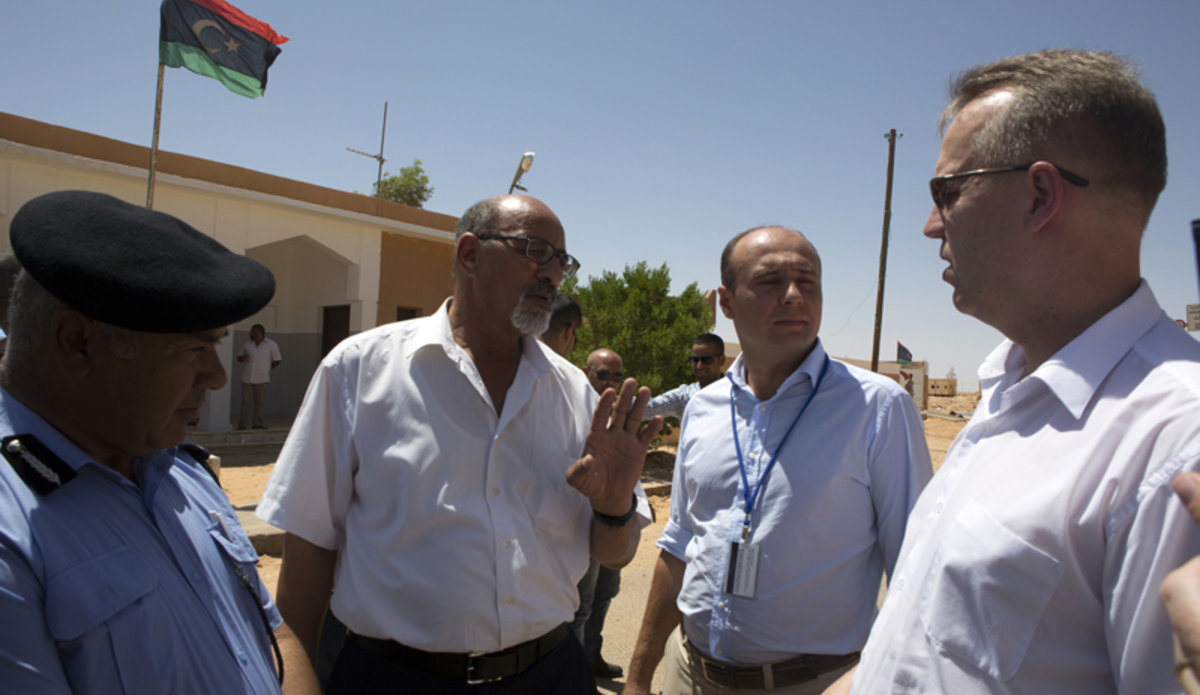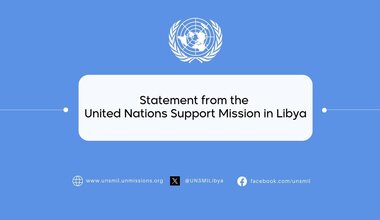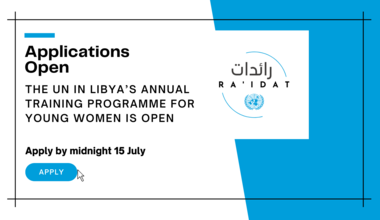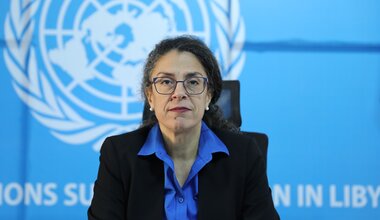Libya’s Border Challenges and International Efforts to Assist Securing Frontier
GHADAMES - Driving from this oasis town deep into the harsh desert, a conspicuous white concrete pole, about 2 ½ metres high, stands out among the countless giant electricity pylons that dot the landscape. Handcarved in the cement at its base are three initials: “L, T, J”.
GHADAMES - Driving from this oasis town deep into the harsh desert, a conspicuous white concrete pole, about 2 ½ metres high, stands out among the countless giant electricity pylons that dot the landscape. Handcarved in the cement at its base are three initials: “L, T, J”.
This is where the land borders of Libya, Tunisia and Jazayer (Arabic for Algeria) meet.
The marker is only a drop in a vast desert border, thousands of kilometres long, that Libya shares with its African neighbours. It is a frontier that, although remote and obscure, has an impact that is felt across the Mediterranean Sea as far away as Europe.
As the group of visitors – a joint team from the United Nations Support Mission in Libya (UNSMIL) and the European Union Integrated Border Management Assistance Mission in Libya (EUBAM) accompanied by Libyan police and army officers – stood at the site, an armoured Humvee and two pickup trucks belonging to the Tunisian Army raced from the other side within minutes of spotting a movement. Minutes later, a truckload of soldiers followed them.
A Tunisian officer approached the Libyan side at the pole and engaged them in friendly conversation, alternating between English, French and his native Arabic. As soldiers from both sides mingled, he explained that peaceful conditions and good cooperation prevailed in that sector with the Libyan side,.
But this friendly encounter, about 20 kilometres from Ghadames, belies the reality of the conditions on Libya’s borders with its neighbours, where the smuggling of goods, arms, fighters and illegal migrants is rife and security has deteriorated since the country’s 2011 revolution, the post-conflict disorder and the recent conflict in Mali.
UNSMIL and the newly deployed EUBAM came to Ghadames on a joint mission in July 2013 to examine conditions in the border area and explore ways of offering support for the Libyans. They heard local officials’ concerns about the lack of resources to help them secure their country’s borders.
Antti Hartikainen, head of EUBAM, brought to Ghadames his long experience in the Border Guard and Customs in his native Finland as well as substantial international experience on issues relating to borders.
“Our intention is to familiarise ourselves with local conditions and society, the border area and the border security situation in order to be able to assist and see what kind of support we can provide … and hear from your side what are your needs,” he told the civilian and military officials of Ghadames at a meeting in town before embarking on a trip to the border triangle and to a crossing point for vehicle traffic on the border with Algeria.
Hartikainen, while explaining the mandate of the recently launched EUBAM and its deployment, was clear in putting the onus on the Libyans themselves. He said EUBAM can produce ideas, offer options and techniques, but that it was up to the Libyans to implement it. For a start, he offered the prospect of training officers on border security in Tripoli,.
“Our mandate is to mentor, advise and provide training,” he said, adding: “Do not expect us to seal the border. We are here to assist you.”
George Paul-Albu, representing UNSMIL’s Security Sector Advisory and Coordination Division, told the meeting that the visit builds on previous missions by UNSMIL officials to the area. “Our intention is to better understand the security challenges in the border area of Ghadames, in the wider context of border security, and identify potential aspects of assistance.”
Hartikainen, the EUBAM head, explained to the Libyans the close cooperation Between EUBAM and UNSMIL on border security and that his mission is responsible for coordinating all international donors.
Libya’s border security remains a clear priority for the country, its neighbours and the wider international community.
In his report to the UN Security Council on Libya in February 2013, Secretary General Ban Ki-moon said that the impact of the military intervention in northern Mali on stability in southern Libya and elsewhere has been highlighted by growing fears that a potential influx of rebels and other groups fleeing from Mali to Libya could render an already fragile security and political situation considerably more unstable. Those concerns have been further compounded by dissatisfaction among the population in southern Libya regarding what they perceive as insufficient action by the central authorities to address demands relating to poor services, deteriorating security, cross-border crime and illegal migration.
In December 2012, Libyan Prime Minister Ali Zeidan led a high-level delegation to Algeria, Chad, Niger and the Sudan to discuss border security and bilateral relations. The visit resulted in an agreement among the four countries to form a joint security committee that would look into putting mechanisms in place to address issues related to border security. On 12 January 2013, the Prime Minister met with his Algerian and Tunisian counterparts in Ghadames and they agreed to joint measures to combat organized crime and cross-border smuggling.
The Secretary-General’s report said that the management of porous borders and the lack of sufficient border control mechanisms continue to be of major concern to Libya and its neighbours. The Secretary-General said UNSMIL continued to work closely with the European Union, emphasizing the need for timely international support in the areas of border security and border management and for such support to be provided in a coherent and complementary manner.
In his latest briefing to the UN Security Council in June, Special Representative of the Secretary-General for Libya Tarek Mitri said that despite official pronouncements by the Libyan authorities, severe capacity limitations result in little practical progress to date.
Mitri said government efforts to address border security necessitate the development of a comprehensive national strategy, addressing issues of integration of revolutionaries, improving inter-agency coordination, training, operational effectiveness, and infrastructure in the southern border region. Libya will also need to engage further in dialogue with its neighbours and its international partners, he added.
In Ghadames, the local officials were encouraged to raise their concerns with the joint UNSMIL-EUBAM mission which would convey them back to officials in the central government in Tripoli.
Alhabib Alboukhari Heiba, acting head of the Ghadames Local Council, was candid in addressing the visitors. “Everyone knows that the security of Libya is part of the security of Europe,” he said. “We hope you will understand our worries and help us in solving our problems.”
Qassem Al-Maneh, a senior local council official and head of the Ghadames Hospital, outlined the strategic importance of Ghadames, some 600 kilometres from Libya’s Mediterranean coastline, and its significance for the European continent that lies across its shores.
“You probably know that Ghadames is a destination for migrants from African countries through Algeria to Libya and you realize that most of them intend to go to Europe,” he said. “Our efforts so far have not been able to effectively stem this phenomenon. We’re not only afraid of illegal migration but also of smuggling of weapons and other parties.”
Other military and civilian local officials expressed concerns about the lack of equipment, training, accommodation (for members of the security forces hailing from outlying areas) and other infrastructure, as well as the lack of facilities for processing and repatriating illegal migrants. One noted that some migrants are sent back only to show up again on the border a few months later, be detained once more and repatriated. Some are caught as many as three times. Another said that border guards lack basic expertise such as knowledge of a second language, beside their native Arabic, in dealing with non-Arabic speaking migrants.
Ghadames itself sits near the triangle near where the Libyan-Algerian-Tunisian borders meet. Its water sources luring travelers, the town has been a rest stop for trade caravans crossing the Sahara since ancient times – and also for traffickers of humans, drugs, weapons and other goods across national borders. Its walled old city, with a water fountain and a labyrinth of narrow streets, is a UNESCO-designated World Heritage site. Outside the walled city, soaring temperatures give the town a nearly deserted look on a summer day. Residents only venture out after dark. At a fresh water source draining into a pond, a few children risked the midday heat for a dip
Tthe Libyan authorities face an uphill battle against professional smugglers who stop at no official border and are experts on smuggling trails dating back to an age when national borders did not exist.
The local Libyan authorities asked for European help with the Algerians and Tunisians, a point Hartikainen said the EU is working on. He added that border management cooperation between Libyan and Tunisian border areas has already been initiated, with an agreement already reached to hold a meeting in September. “There is cooperation but it is not systematic. We want it to be systematic,” he told the Libyans.
Prior to the desert mission in July, UNSMIL had been actively engaged with the Libyans on border security as part of its mandate.
A workshop hosted by the Libyan Ministry of Foreign Affairs and the Ministry of Defence with the support of UNSMIL on 22-23April recommended establishing an integrated border security operations centre that would comprise representatives of the Border Guards, the police, customs, coastguard and others, alongside ensuring better cooperation, coordination and information-sharing among Libyan security bodies involved in border security,.
The workshop also recommended integrating revolutionary brigades and other local groups into Libya’s border security and management system as well as rehabilitating border units through capacity-building and improving infrastructure and training; increasing effectiveness of forces through enhanced mobility of patrols on the ground; and strengthening reconnaissance capacity from the air and operational capacity at sea.
Finally, the workshop recommended reactivating and introducing bilateral cooperation agreements with neighbouring states. They also emphasised the issues of the South, calling for the opening of new training centres in the region; raising awareness of potential dangers such as organized crime; improving living conditions and establishing a mechanism for national reconciliation including among tribes and Internally Displaced Persons.
For now, the Libyans say that patrolling of the border is largely carried out by brigades of revolutionaries.
“We are in dire need of your expertise,” Brigadier-General Omar Humeida, director of the Ghadames Border crossing, told the international mission at the meeting.
---------------------------------------
Article and Photos by:
Samir F. Ghattas
UNSMIL Public Information & Communication Section
 United Nations Peacekeeping
United Nations Peacekeeping UN
UN
